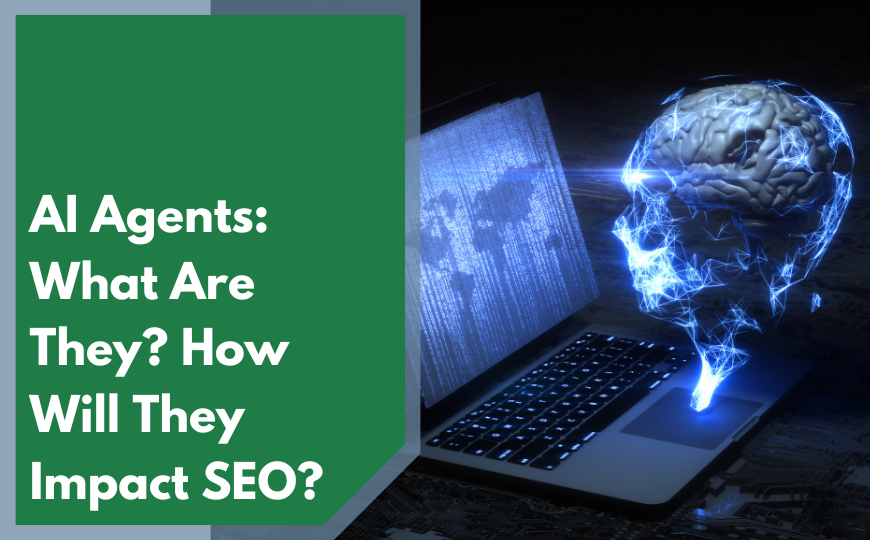ChatGPT has transformed how users engage with information by providing conversational responses using large language models, rather than returning ranked web pages like traditional search engines. This shift represents a fundamental change in how your business must approach SEO.
Optimizing for ChatGPT is not about ranking higher in a search results page—it’s about becoming a trusted source that AI chatbots pull information from. This article will show how your business needs to adapt to this new reality to increase your chances of being referenced in AI-generated answers. The alternative is too costly, since companies that stick to outdated SEO strategies will see their visibility decline over time.
How Does ChatGPT Compare to a Search Engine?
ChatGPT processes vast amounts of data to generate conversational responses. Instead of presenting a list of ranked search results, it provides a single synthesized answer based on the content it has been trained on. Also, unlike Google or Bing that rank pages algorithmically, it relies on machine learning models to refine its ability to predict the best response.
When enabled with browsing or connected to plugins and third-party tools, ChatGPT can cite external sources. However, in most cases, responses are generated based on its training data and not tied to live web indexing. Unlike traditional keyword rankings, responses are tailored based on the context of a user’s question. With more users turning to AI-driven chatbots for information, you must rethink how to structure content to ensure AI tools recognize your business as an authoritative source.
How Do You Optimize for ChatGPT?
1. Ensure Content is AI-Friendly and Conversational
ChatGPT prioritizes content that aligns with natural language patterns and structured, direct answers. You need to optimize content for readability, clarity, and conversational flow. Writing in a natural and easy-to-understand tone, providing concise answers upfront before diving into details, and using structured headings and subheadings all help AI extract relevant sections. Avoiding excessive jargon or keyword stuffing is key, as AI prioritizes readability over outdated SEO tactics.
Additionally, content length and depth are now crucial to visibility. AI-driven search favors comprehensive, well-researched articles that answer multiple aspects of a query. Focus on creating long-form and in-depth content that anticipates follow-up questions AI users might ask.
2. Be an Authoritative Source for ChatGPT Answers
One of the biggest opportunities in AI SEO is being referenced directly in ChatGPT-generated responses. To increase the likelihood of being cited, publish well-researched and expert-driven content that AI can recognize as authoritative. Your website must be frequently updated with fresh and accurate information. Securing backlinks from reputable sources strengthens content credibility. Writing content that aligns with high-trust domains, such as government sites, industry journals, and academic research papers, also increases credibility.
Additionally, take the opportunity to engage in thought leadership by contributing expert opinions to industry publications and participating in authoritative discussions online. ChatGPT prioritizes sources with high credibility and verified expertise, so displaying your business as an industry leader will give you more visibility with AI search and chatbots.
3. Build AI-Ready Knowledge Bases & FAQ Content
AI chatbots prioritize well-structured knowledge bases and frequently asked questions, so start optimizing for AI search by developing dedicated FAQ pages that address common industry questions and writing how-to guides that provide step-by-step instructions.
Format your content using Q&A structures to ensure AI retrieval preferences are met. Also, implement structured data markup like FAQ schema to make your content easier for AI to extract and cite. Overall, provide AI-friendly and well-organized information to have a much higher chance of being referenced in AI-generated answers.
4. Use OpenAI’s API for Custom Chatbot Experiences
Beyond optimizing for ChatGPT’s public-facing model, your business can integrate OpenAI’s API to build custom AI-driven chatbots. This approach enables your company to enhance customer engagement with AI-powered conversational assistants, improve lead generation by guiding prospects through AI-assisted inquiries, and offer real-time, AI-driven support that complements human customer service teams.
As an additional step, invest in AI-driven chatbot solutions for your own website to position your business at the forefront of automated customer service, AI-driven lead nurturing, and personalized digital experiences.
5. Optimize for Voice Search and AI-Assisted Responses
As more users interact with AI via voice commands, your business must also ensure your content is optimized for voice search. Writing in a conversational and question-and-answer format, structuring responses to be concise and direct, and using long-tail, conversational keywords helps AI assistants better match your content to user voice queries, increasing the chance your information will surface in voice-driven interactions.
AI-powered voice search is rapidly expanding, so aligning your content with spoken queries will give your business a distinct advantage. Focus on AI-powered customer engagement tools to enhance interactions through AI-generated recommendations. Personalized content suggestions based on user queries can significantly improve your brand authority and user experience.
What is the Future of ChatGPT Optimization?
As AI-driven search and chatbot interactions become more sophisticated, it’s time for your business to continuously refine your content strategies. The next wave of ChatGPT optimizations will likely involve AI-generated personalization where AI-driven customer experiences tailor responses based on user behavior. Context-aware content will become more important, as structuring information so that AI models can retrieve real-time, intent-based responses will improve visibility.
AI-powered content syndication will ensure that your brand content is distributed across multiple AI-driven platforms, maximizing reach and credibility. Begin your preparations today by optimizing your content for multiple languages, as AI-powered chatbots are increasingly used for global queries. Implementing multilingual content ensures a broader audience reach and enhances international search visibility. AI-driven search will continue evolving, making it essential for your business to stay ahead of trends and adapt your SEO approach accordingly.
Is Your Company Ready to Grow With ChatGPT?
ChatGPT and AI-driven search engines are changing the digital landscape. Expand your SEO strategy to include AI-readiness by focusing on structured, authoritative content that AI models can understand and reference, even if they don’t directly cite your site. Optimizing for ChatGPT means creating structured, high-quality, conversational content that AI recognizes as authoritative.
By adapting today and prioritizing voice search optimization, AI-driven personalization, and real-time content updates, your business will not only experience growth but also lead the next era of AI-powered search.
Is your company AI-ready? Ensure your visibility in AI-driven search by booking an AI SEO Maturity Audit with our experts at DirectiveGroup today.






